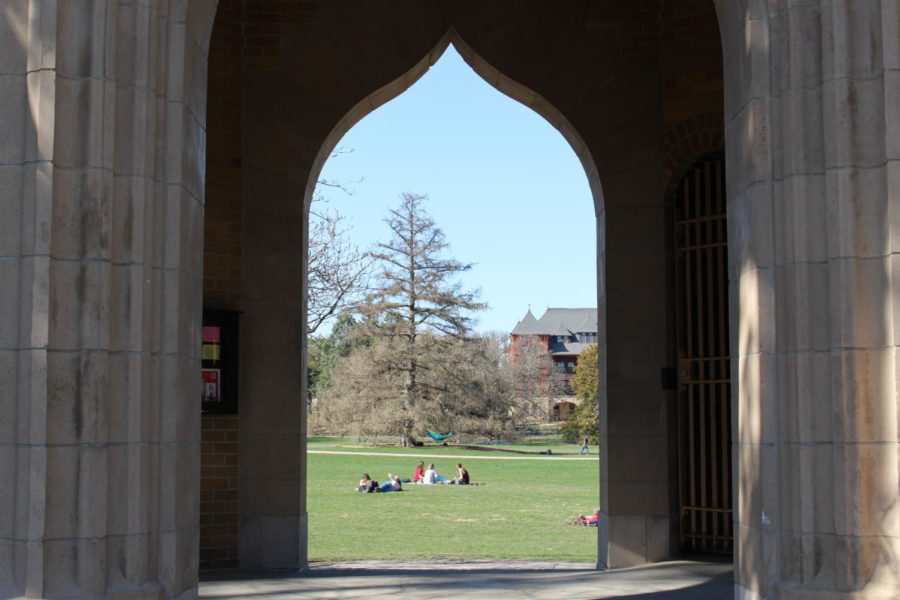Tyrrell: The case for year-round school
Iowa State students relax on central campus enjoying the nice weather on April 25.
April 23, 2018
Few things are more sacred to American students than summer vacation.
Each year, as the weather becomes balmy and the skies clear, a veritable buzz of excitement takes over campus, visible in the crowds of students hammocking by the Campanile or tossing around a Frisbee outside of Parks Library.
Most of the excitement about summer break stems from the tantalizing thought of three months without school. Warm weather, more free time, no stress over tests and grades—what could be better?
Three words: Year-round schooling.
Hear me out. “Year-round” doesn’t literally mean school is in session for the entire year; in most cases, it means the academic year is divided into quadrants of eight or nine weeks with two to four week breaks in between. The idea of being in school throughout the entire calendar year might sound wildly unappealing, but there are so many positive benefits from this type of academic planning that it ultimately makes more sense.
This system benefits teachers, parents and most of all, students.
One of the biggest ways income disparity affects education takes place over the summer, when low-income students are likely to lose over two months of reading improvement, while middle and upper-income students continue to make gains in their reading abilities.
Eliminating a long summer break that academically favors wealthier students is an easy way to reduce the poverty gap. And all students experience a decline in math skills over the summer; getting rid of such an extended break would help students retain more of their math skills.
Additionally, spending less time out of class means that teachers will spend less time in class reviewing old material. Students will learn at a quicker pace, and teachers will have more time to focus on quality teaching rather than desperately trying to get through all the course material.
Year-round schooling also has huge benefits for parents, especially parents trying to juggle full-time jobs with the schooling and activities of multiple children.
A more consistent school calendar will mean parents only have children home all day for a couple weeks at a time instead of forcing them to spend thousands on nannies, daycare or summer programs to take care of their kids during the summer while they’re working.
And here at Iowa State, year-round schooling might make it easier to fit in a study abroad or co-op term, or reduce credit assignments each semester so students have more time to be involved in other activities. It will also make it easier to come back after each break with the previous term’s classes still somewhat fresh in your mind.
At first glance, year-round school might sound like a nightmare, but it has a surprising amount of benefits. Judging by the pace of change in this country, it’s going to be a while before the school calendar changes to reflect this smarter option.
But hopefully we’ll get there someday soon.
















